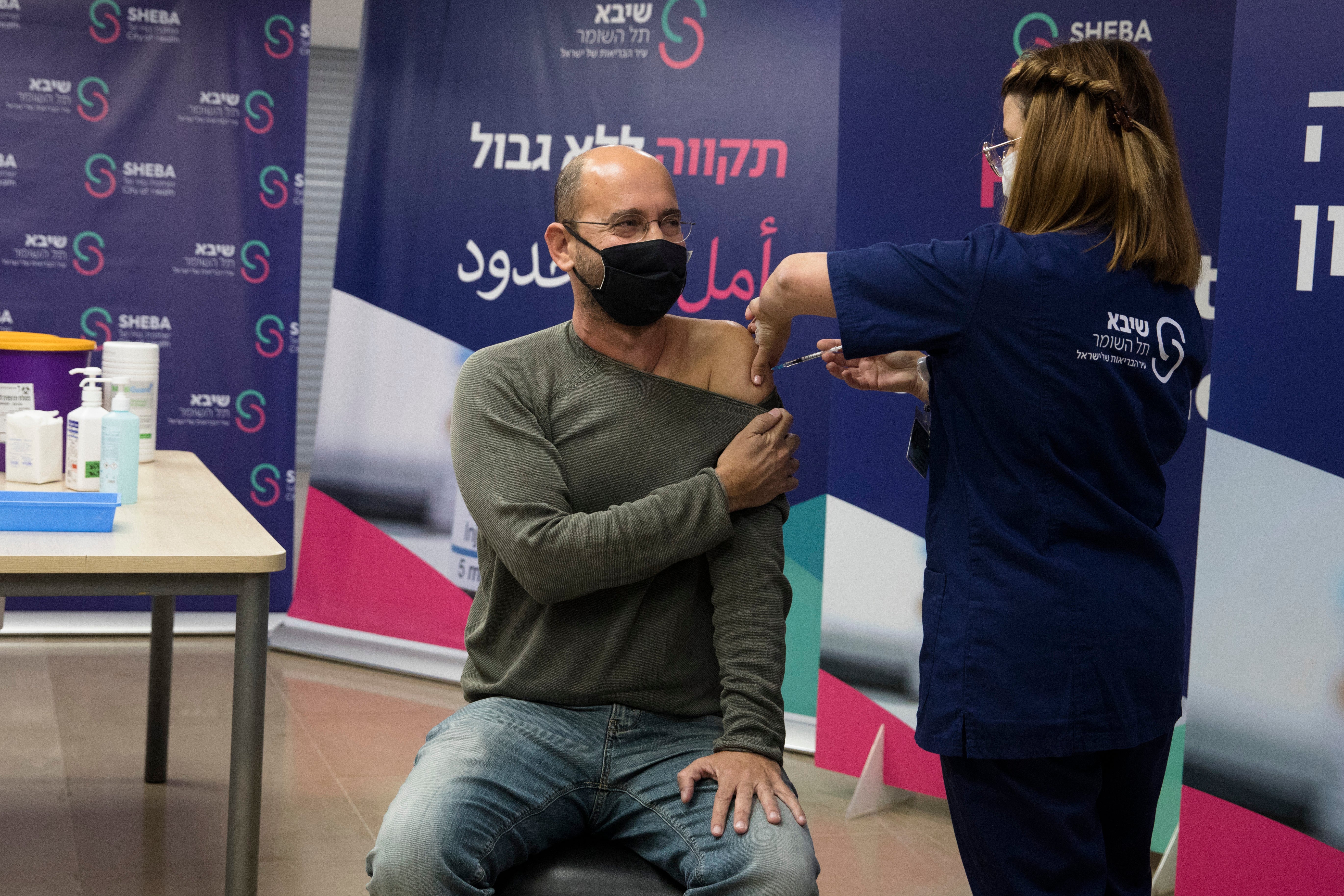Omicron could lead Israel to reach herd immunity, says top health official
‘We want it to happen as a result of many people vaccinating,’ says director-general of health ministry

Your support helps us to tell the story
From reproductive rights to climate change to Big Tech, The Independent is on the ground when the story is developing. Whether it's investigating the financials of Elon Musk's pro-Trump PAC or producing our latest documentary, 'The A Word', which shines a light on the American women fighting for reproductive rights, we know how important it is to parse out the facts from the messaging.
At such a critical moment in US history, we need reporters on the ground. Your donation allows us to keep sending journalists to speak to both sides of the story.
The Independent is trusted by Americans across the entire political spectrum. And unlike many other quality news outlets, we choose not to lock Americans out of our reporting and analysis with paywalls. We believe quality journalism should be available to everyone, paid for by those who can afford it.
Your support makes all the difference.Israel is on course to reach herd immunity as a result of the Omicron variant triggering surging case numbers, the country’s top health official has said.
Daily cases in Israel are expected to reach record highs in the coming three weeks.
Nachman Ash, director-general of the health ministry, said that it was now possible that herd immunity could be reached as a result of the significant level of infections.
However, he said it was not desirable to reach this point through infections, and that vaccinations remained the best path to protecting people.
“The [infection] numbers will have to be very high in order to reach herd immunity,” he told Israeli radio.
“This is possible but we don’t want to reach it by means of infections, we want it to happen as a result of many people vaccinating.”
Herd immunity is reached when a high proportion of the population are either vaccinated or have been infected and recovered, making it difficult for infectious diseases to spread.
Salman Zarka, the head of the health ministry’s coronavirus task force, has warned that herd immunity is far from guaranteed, not least because experience over the past two years has shown that some Covid-19 patients who recovered were later reinfected.
Around 60 per cent of Israel’s 9.4 million population are fully vaccinated, which means they have either received three doses or have had their second dose recently.
Hundreds of thousands of those eligible for a third jab have so far not taken it, though.
Israel, which rolled out its vaccine effort at the world’s fastest rate, and was the first to start delivering third doses this summer, announced last month that it would offer a fourth dose of the coronavirus vaccine to people over the age of 60.
On Sunday, the country approved the use of Merck’s molnupiravir antiviral pill for Covid patients over 18 years of age.
In November, the UK became the first country in the world to approve molnupiravir, which has been shown to reduce hospitalisations and deaths by around 30 per cent in a clinical trial.
Around 1.3 million coronavirus cases have been documented in Israel since the start of the pandemic. But between 2 and 4 million people may well be infected by the end of January, when the Omicron wave could subside, according to Eran Segal, a data scientist at the Weizmann Institute of Science and an adviser to the government.
Over the past 10 days, daily infections have more than quadrupled. Severe cases have also climbed but at a far lower rate, rising from about 80 to around 100.



Join our commenting forum
Join thought-provoking conversations, follow other Independent readers and see their replies
Comments